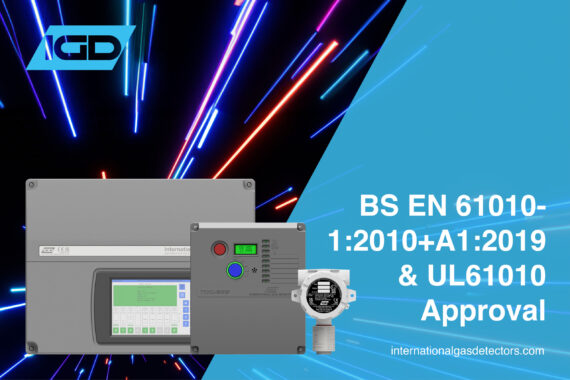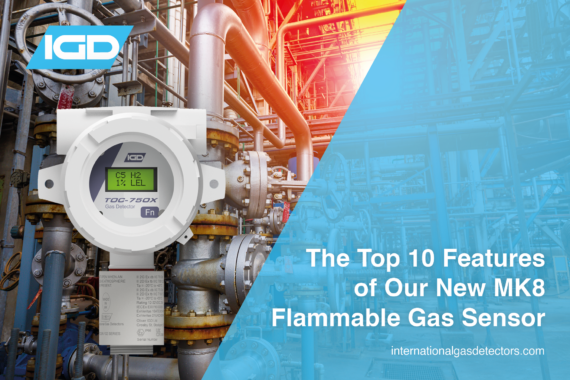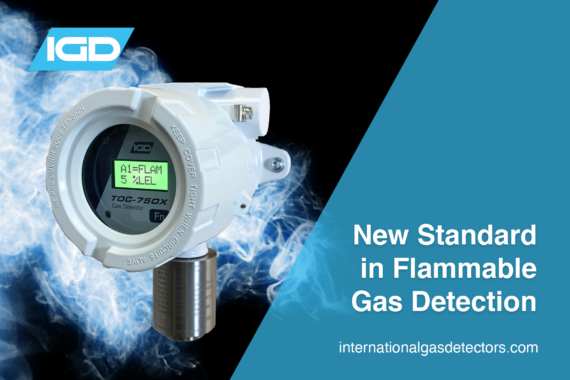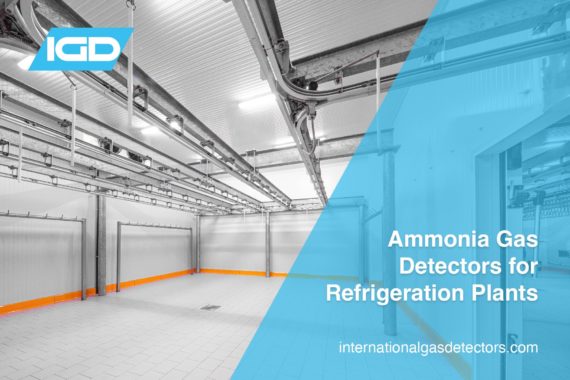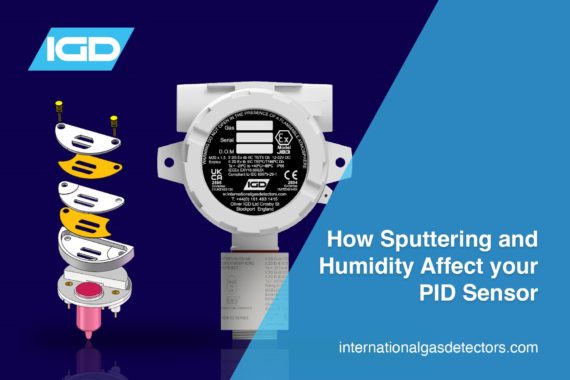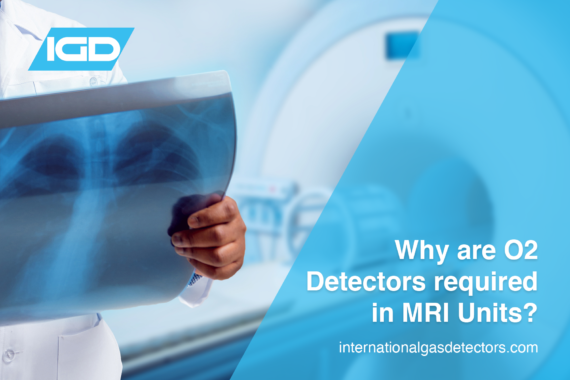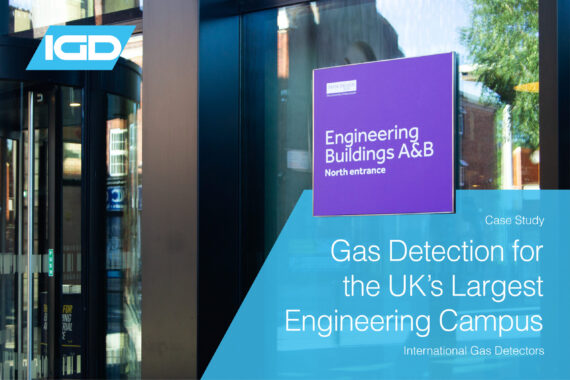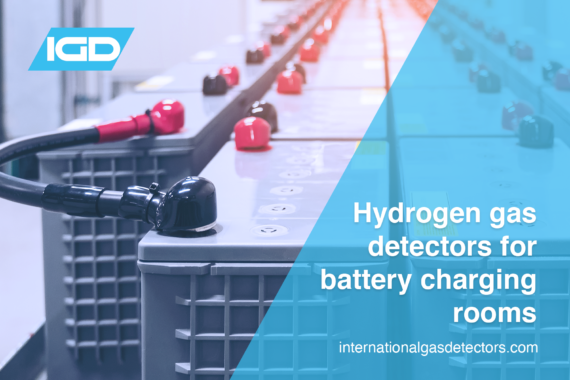IGD are happy to announce that we are now approved to the BS EN 61010 and UL 61010 standards for our 750 series of control panels and gas detectors. This standard ensures clients will not be subject to any hazards caused by electronic equipment, such as electric shock or burn and radiation when using our system. Thus, supplying clients with the highest standard of safety for their gas detection solution. Read on below to find out more about this standard.
The Top 10 Features of Our New MK8 Flammable Gas Sensor
Fixed flammable gas sensors play a vital role in industry; keeping personnel safe and protecting vital assets. And when searching for a flammable gas sensor, it can be overwhelming with the number of choices available on the market. This blog post gives you a run down of the top 10 features of our latest flammable gas sensor, the MK8 pellistor, helping you in choosing the best solution for your team and business. Read on below to find out more.
New Standard in Flammable Gas Detection – MK8 Pellistor Gas Detector
International Gas Detectors Ltd have designed and released a new standard for flammable gas detection, the MK8 pellistor gas detector. The MK8 pellistor gas detector combines over 65 years of pellistor engineering with reliability and tested performance to provide clients with the most accurate, poison resistant pellistor based gas detector in the world. This advance in pellistor gas detector design demonstrates IGD’s commitment, innovation and capability. Read our article below to find out how the MK8 is setting a new standard for flammable gas detection.
Ammmonia Gas Detectors for Refrigeration Plants
Large-scale refrigeration systems are an integral part of many industries, such as cold storage, petrochemical refining, and food processing. In such applications, Ammonia is the most common choice of refrigerant due to its effective physical properties and low freezing point, making it perfect for refrigeration uses. As ammonia is extremely dangerous to life and health at a concentration of 25ppm (8hrs) and 35ppm (15 minutes), it is critical for ammonia gas detectors to be used in such applications to maintain the safety of the plant and those in the vicinity.
How Sputtering and Humidity Affects your PID Sensor
As a lot of our readers may have seen in our PID and VOC articles, we frequently mention the terms ‘sputtering’ and ‘humidity’ and their effects on a PID sensor. But what does sputtering mean? And how exactly do these have a negative effect on the performance of a PID? This article aims to answer these questions, detailing these issues and how IGD has managed to negate them from our PID sensors.
Gas Detection Solutions for Hazardous Waste
Many jobs involve working with or around hazardous waste daily. Therefore, protecting workers and working environments from dangerous substances and impacts thereof is paramount.
International Gas Detectors (IGD) manufacture and distribute numerous gas detection products, and provide system installations, service, and maintenance on gas detection systems, alongside training consultancy services.
Why are O2 monitors required for MRI units?
MRI units are not commonly thought of when talking about gas safety, however these areas can quickly become dangerous when leaks occur. Understanding the dangers of MRI units as well as the gases used within them are vital to understanding why O2 monitors are required in these areas. This article covers all of the essential information in understanding this. Including the gases encountered in these areas to providing you details of IGD’s detectably better solution in O2 monitors.
The UK’s Largest Engineering Campus Benefits from IGD’s Gas Detection Systems
International Gas Detectors (IGD) recently completed a large gas detection project in partnership with Medical Pipelines Services Ltd. The Manchester Engineering Campus Development, for the University of Manchester, is the UK’s largest engineering campus with over three hundred (300+) IGD TOC-750 addressable gas detectors protecting staff and students 24/7. Read our case study to learn more on how we helped University of Manchester protect staff and students 24/7 from gas leaks.
Hydrogen Gas Detector for Battery Rooms
It is a well-known fact that hydrogen is a common by-product when charging lead acid batteries. Our blog post will help discuss why you need to ensure your battery stores have a hydrogen gas detector

